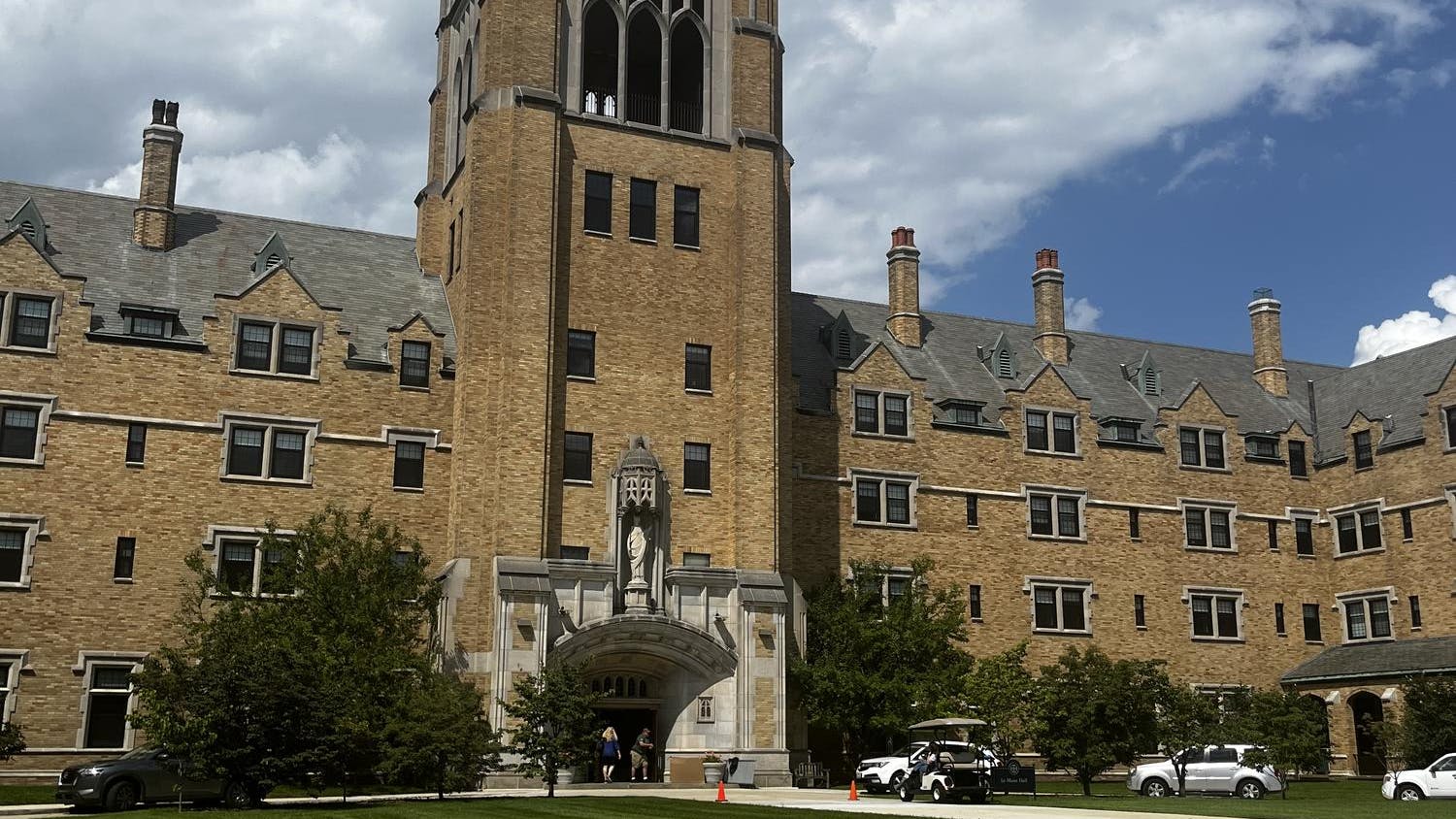After senior Brandon Buchanan decided to come out to the Notre Dame community as gay, he felt "surrounded and suffocated" by the heterosexual culture at the University.
Single-sex dorms, parietals forcing his female friends to leave and talk of "ring by spring" felt overwhelming to Buchanan and he got severely depressed.

"I had a really, really hard time," he said. "I wanted to drop out of school."
Buchanan said the process of coming out was challenging enough when it was done by choice. If someone had outed him before he was ready, he "[couldn't] even imagine" what it would feel like.
The case of Rutgers University freshman Tyler Clementi, who committed suicide Sept. 22 after his roommate streamed a live encounter between Clementi and another male on the Internet, is one of several recent incidents that have raised questions about the level of acceptance on college campuses.
The Straight and Gay Alliance (SAGA) at Saint Mary's College held a candlelight vigil last night in response to the recent suicides.
"The Rutgers situation was just horrifying. It was just one of those things that puts everything back into perspective," Karen Borja, SAGA president, said. "If it happened there, there is a possibility that it can happen here."
Borja said the vigil was meant to "show that Saint Mary's cares," but also to give a voice to the issue and start a dialogue.

Buchanan said this kind of preemptive dialogue is exactly what the Notre Dame and Saint Mary's community needs.
"[You] should never have to lose a person to have that conversation," he said.
But Buchanan said he hasn't heard many students discussing the issue since Clementi and other similar cases made headlines.
"I honestly don't think Notre Dame people think it could happen here," he said. "And I would disagree."
Buchanan estimated there are about 200 people in the lesbian, gay, bisexual and transgender (LGBT) community at Notre Dame. Among those, he said about 150 are closeted students who could potentially be outed without their consent.
"There are people here who are completely unwilling to come out but are in these tenuous situations where something could happen," he said.
Another issue that played a role in recent publicized suicide cases among gay teens was bullying and harassment.
"Being a teen in general is hard for everyone," he said. "Every teen wants to be normal."
But fitting in can be more difficult for gay teens that often experience bullying and harassment. Buchanan said teens tend to react emotionally and think the mistreatment will never end.
"You assume that the way you're treated in high school is the way you are going to be treated always," he said.
Buchanan said this hopelessness is a significant factor in the choice to commit suicide and gay teens need role models who can tell them that it will get easier.
"No matter where you go, homophobia will be there. However, your ability to handle it, your self-confidence and your own knowledge will grow as you get older," Buchanan said. "You just have to wait for it. You just have to survive the pain that you feel now and believe that it will get better."
Another factor is the fear that they would lose their support system. In particular, Buchanan said many worry they will lose the unconditional love of their parents if they come out.
"People don't understand what it would be like to fear losing that foundation, especially when as a teen you are dependent on your parents for income and to support you," he said.
On Notre Dame's campus, Buchanan said he has not experienced harassment or outright discrimination as much as an assumption of heterosexism.
"People feel like the only crime against the LGBT community is a hate crime. No, no one has been beaten up between dorms in the middle of the night," he said. "But it's an atmosphere. It's an apathy."
Buchanan said there is an assumption on campus that everyone is heterosexual.
"I always feel uncomfortable with ‘Do you have a girlfriend?'" he said.
Buchanan suggested using "inclusive language" by asking questions like, "Do you have a significant other?"
Borja asked students to be tolerant of the LGBT community at Notre Dame and Saint Mary's.
"Coming out is something really profound. It's like the essence of a person. If you can't respect that then what can you respect?" she said. "There just needs to be that tolerance for other human beings."
Buchanan said change is slowly occurring at Notre Dame in regards to accepting the LGBT community, but that does not mean the University is immune to tragedies like those that have occurred throughout the nation.
"Do I think that we're making strides as a community? Are we trying? Yes," he said. "But could it still happen here? Yes."












